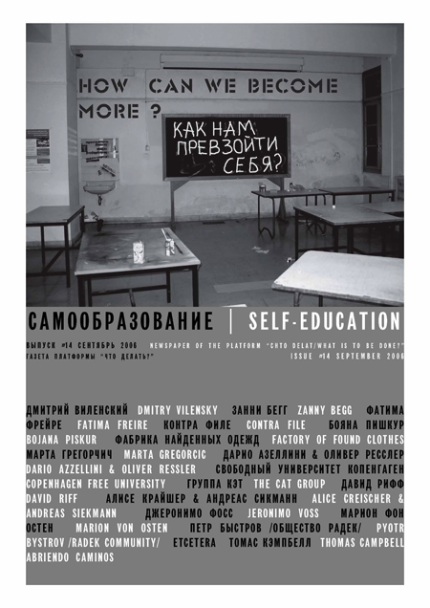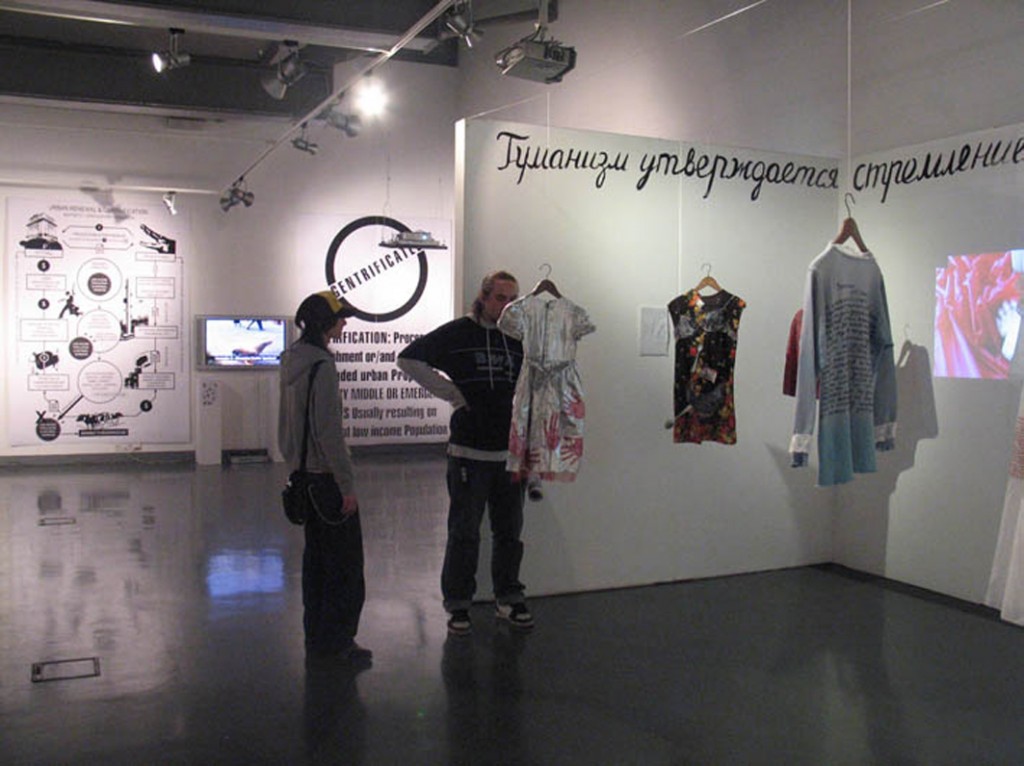September 2006
Idea and realization: Workgroup Chto delat/What is to be done?
Editors: David Riff and Dmitry Vilensky
Many thanks to all the artists, authors, translators and photographerswho supported this publication.
This publication was realized in the framework of the exhibition “Self-Education” at the National Center for Contemporary Art Moscow, 06.09.-30.09.2006
We would like to express our gratitude to Kirill Krutikov for his financial support of this issue.
This publication is a contribution to documenta 12 magazines, a collective editorial project linking worldwideover 70 print and on-line periodicals, as well as other media.











